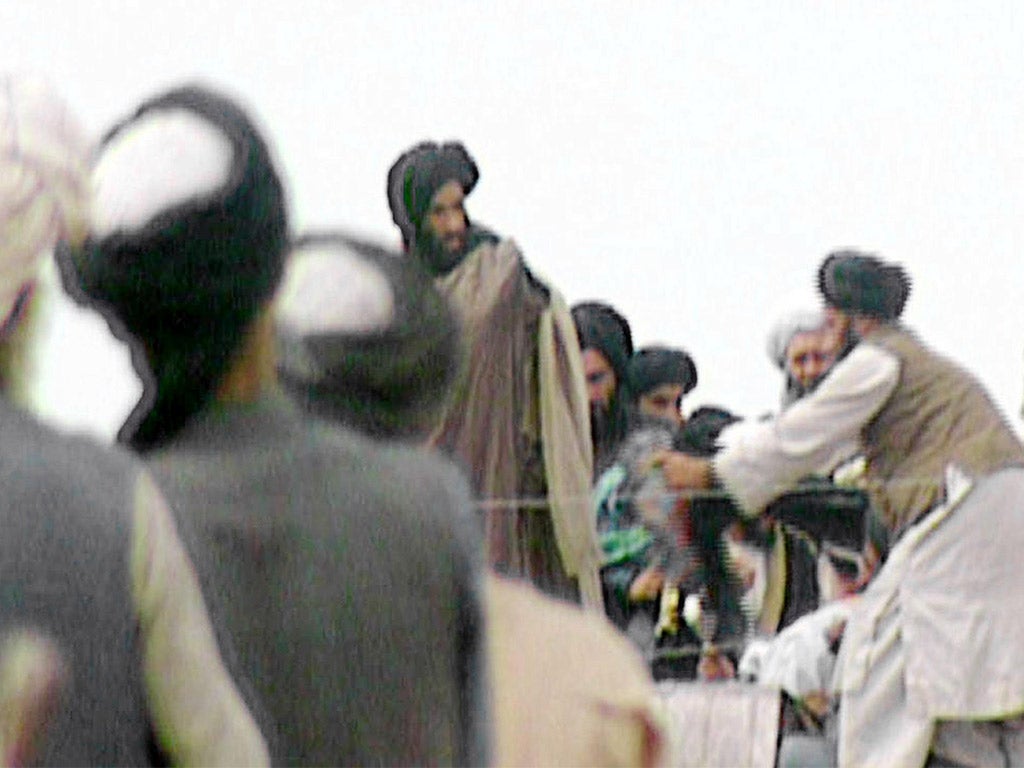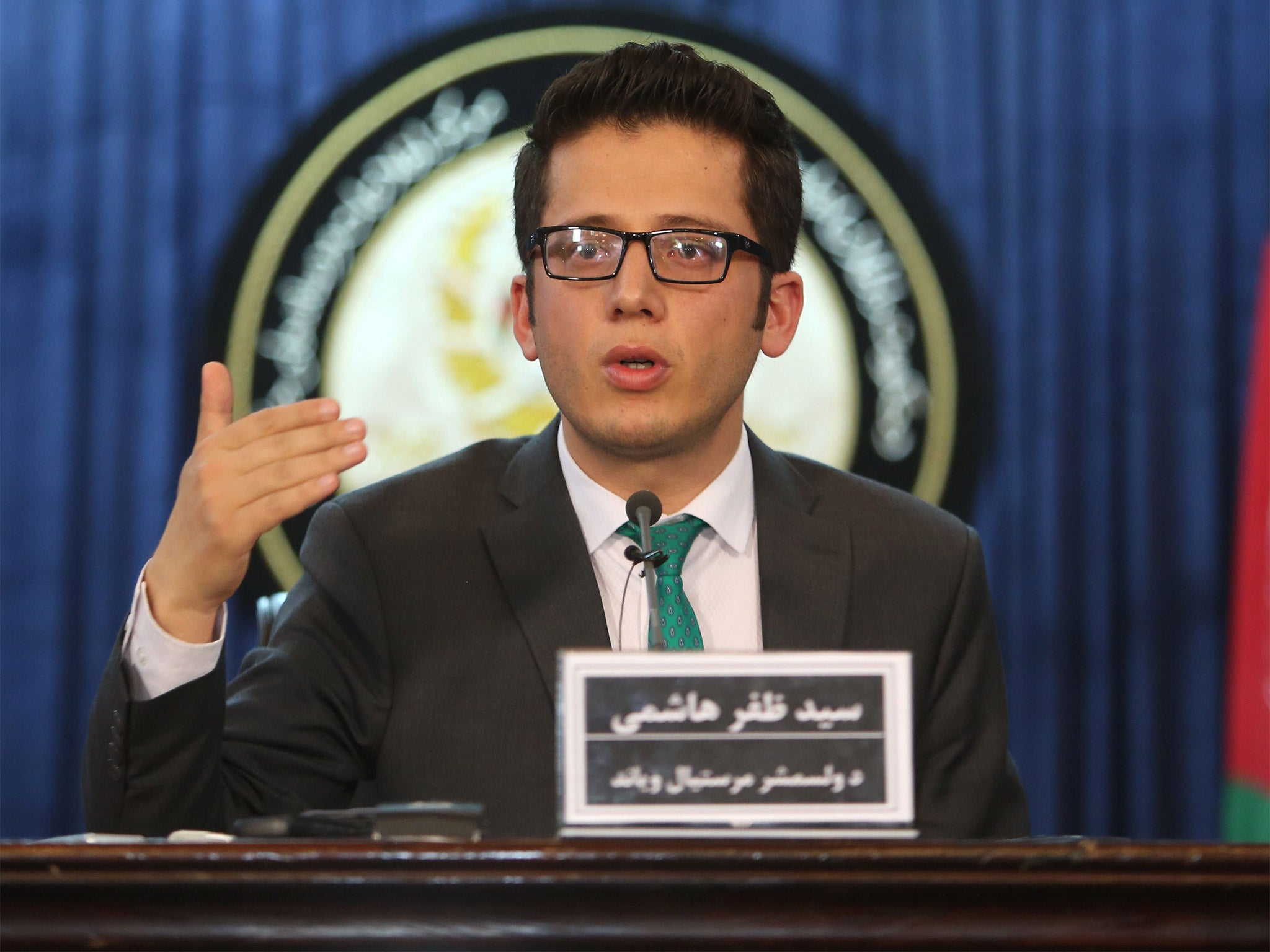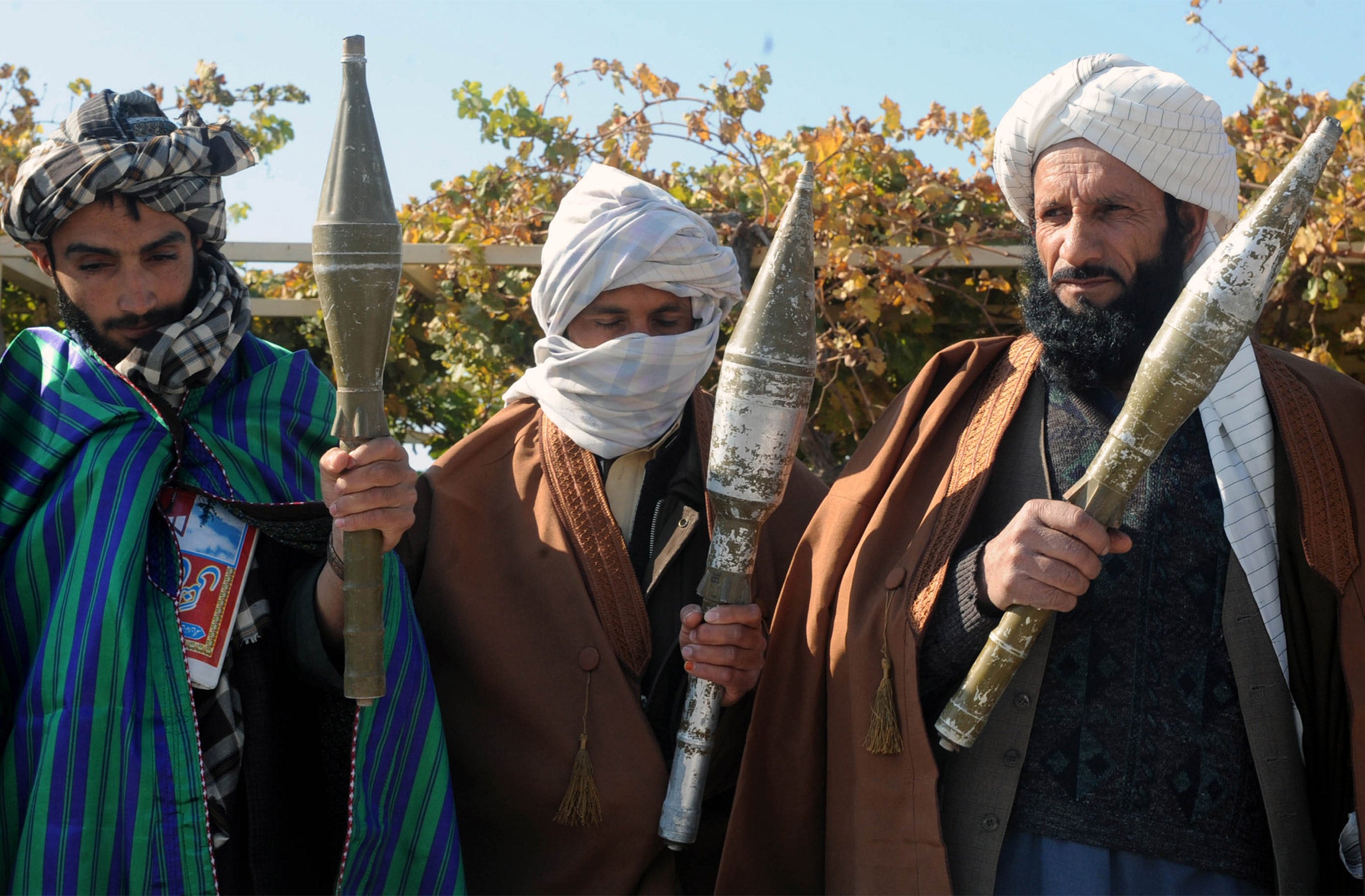Taliban leader Mullah Omar 'dead for two years', Afghan government confirms
Afghan intelligence services confirmed that Omar had died in a Karachi hospital in April 2013

Your support helps us to tell the story
From reproductive rights to climate change to Big Tech, The Independent is on the ground when the story is developing. Whether it's investigating the financials of Elon Musk's pro-Trump PAC or producing our latest documentary, 'The A Word', which shines a light on the American women fighting for reproductive rights, we know how important it is to parse out the facts from the messaging.
At such a critical moment in US history, we need reporters on the ground. Your donation allows us to keep sending journalists to speak to both sides of the story.
The Independent is trusted by Americans across the entire political spectrum. And unlike many other quality news outlets, we choose not to lock Americans out of our reporting and analysis with paywalls. We believe quality journalism should be available to everyone, paid for by those who can afford it.
Your support makes all the difference.Mullah Mohammed Omar, the one-eyed Taliban leader who sheltered Osama bin Laden following the 9/11 attacks, has been dead for more than two years as a stream of bogus jihadist declarations were issued on his behalf, according to the Afghan government.
The startling claim about the Mujahedin commander from Kandahar – who once headed Afghanistan’s Taliban regime, and then the vicious insurgency which followed – has been confirmed as credible by the White House.
It followed growing numbers of reports that the Mullah, said to be aged around 60, and suffering from ill health, had died. The account which emerged of his death, including that it took place in a Pakistani hospital in April 2013, gained credence as the Taliban governing council, the Quetta Shura, produced no evidence to counter it.
The claim of Mullah Omar’s demise comes at a critical time in the war in Afghanistan. The country’s President, Ashraf Ghani, who won a bitterly disputed election against former Foreign Minister Abdullah Abdullah, has staked all on the Pakistani security establishment bringing the Taliban, whom they control, to the negotiating table.

Afghan and Western officials maintained that the subterfuge that Mullah Omar was alive could only have been organised by the Pakistani secret service, the ISI. According to senior sources in Kabul, after hearing of the death, a flustered President Ghani held a meeting with ministers and asked officers in his intelligence service: “If Mullah Omar is dead, who could take over?”
Mullah Omar has not been seen in public since the Taliban regime’s overthrow by American and British-led forces in 2001. The Pakistani government’s official position has been that Mullah Omar was never in Pakistan and that the Taliban leadership had never been based in Quetta. However, Afghan and Western officials said the country’s military has now admitted that the cleric had, in fact, died in a Karachi hospital.
Abdul Hassib Seddiqi, chief spokesman for the Afghan intelligence service, the National Directorate of Security, said: “There is no longer any doubt. He was very sick and died suspiciously there. We have been raising this question for the last one-and-a-half years. We have intelligence that Mullah Omar is no longer alive. Now we are happy that foreign forces [the Pakistanis] are confirming this as well.”
A statement from the office of President Ghani added: “The government of the Islamic Republic of Afghanistan, based on credible information, confirms that Mullah Mohammed Omar, leader of the Taliban, died in Pakistan.”
Rumours that the Taliban leader had died intensified last week after a breakaway faction, Feday-e-Mahaz, posted a Facebook entry alleging that his body was smuggled into southern Afghanistan and buried in Zabul province. Feday, which opposes negotiations with the Kabul government, predicted that disaffected and leaderless Taliban fighters would flock to its banner.
Afghan government sources say a struggle has developed between two factions in the Taliban vying for control, one headed by Omar’s son, 26-year-old Mullah Mohammed Yaqub, the other by his deputy, Mullah Akhtar Mansour. There were said to be “serious differences” over who would lead the peace talks, which are due to continue tomorrow in Pakistan.
Abdul Hakim Mujahid, a former diplomat in Afghanistan’s Taliban administration and a member of the Afghan High Peace Council, which had been set up to promote negotiations, said: “Omar’s role has been extraordinarily influential. If these reports are true, the question of a successor will be the first thing that has to be dealt with before negotiations can go on.”

Afghanistan now also faces the threat of Isis, which has been making significant gains since establishing its presence at the start of the year. The Americans had initially dismissed Isis as nothing more than a symptom of infighting within the Taliban. But they have been forced into a hurried reassessment, and the head of the US military, General Martin Dempsey, recently held an emergency meeting with President Ghani to formulate a strategy against the advances made by the adherents of Abu Bakr al-Baghdadi.
Isis has undoubtedly gained from Taliban defections. One local leader in Helmand, Mirwais, explained that his recent decision to join the mission to establish the so-called Islamic State was directly linked to the disappearance from view of Mullah Omar. “We respect him, but if he is alive, why does he not appear and guide us?”
According to Pakistani sources, Mullah Omar had been taking a back seat in running the Taliban as his health deteriorated. He had spent the last year of his life in the city of Rawalpindi, the headquarters of the Pakistani military, because he was worried about American drone strikes.
There was bewilderment, as well as anger, from Taliban fighters in the field as the news broke. A commander in charge of 400 fighters in Sangin, one of the most violent parts of Helmand province, told The Independent: “I am not going to hide it from you, the morale of the men is very low, there is a lot of confusion. If the Commander of the Faithful is dead then the Taliban have lost someone who is irreplaceable.”
The commander asked: “If he died two years ago, who was issuing the statements, who were we fighting for? Why were we fighting?”
Subscribe to Independent Premium to bookmark this article
Want to bookmark your favourite articles and stories to read or reference later? Start your Independent Premium subscription today.
Join our commenting forum
Join thought-provoking conversations, follow other Independent readers and see their replies
Comments